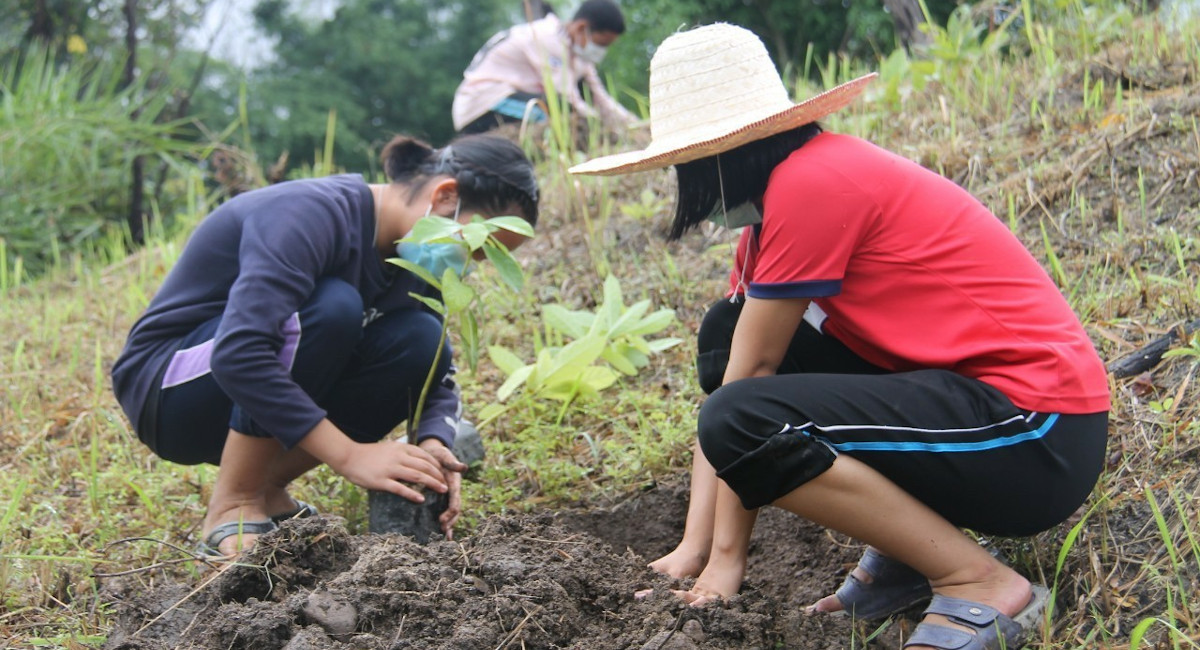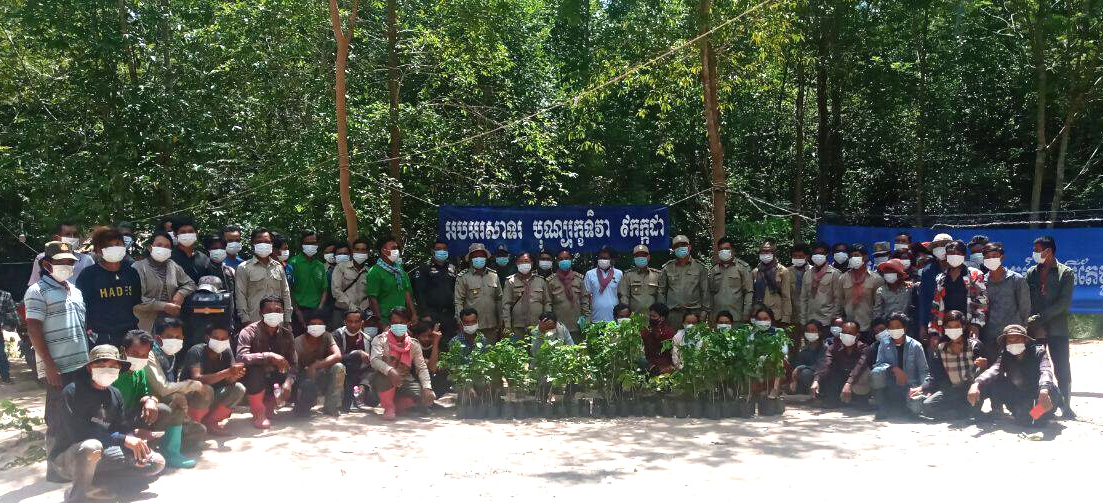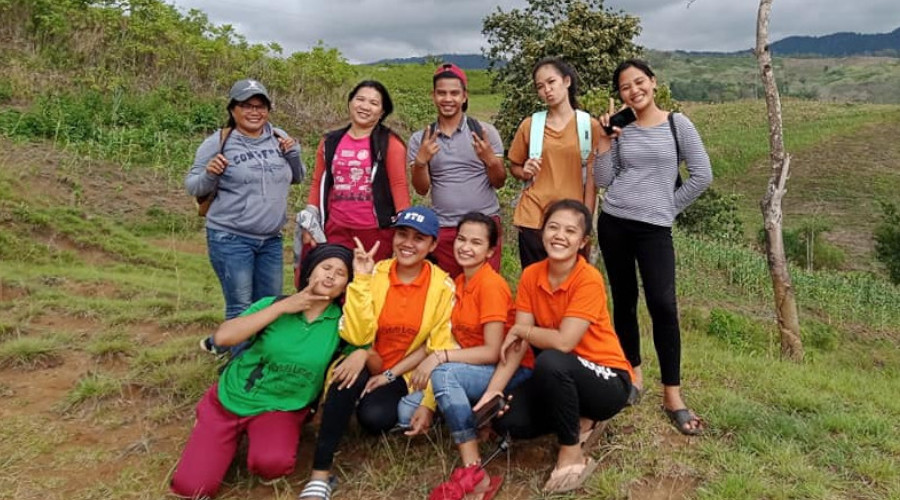
At the beginning of the year, Jesuit Refugee Service (JRS) Asia Pacific with the Indigenous, Youth, and Reconciliation with Creation ministries of the Jesuit Conference of Asia Pacific brainstormed on a collaborative project that would strengthen social and ecological systems of indigenous communities that depend on the sustainability of their natural resources for survival.
What came about was the Growing Canopies, Strengthening Communities project, otherwise known as the 40-4-40 campaign referencing the 40,000 trees that the project aims to plant in celebration of JRS’ 40th anniversary this year. For every dollar donated, the project will plant one native tree species in areas identified by partner communities.
Six months after its launch in April, the project has achieved 78.5 per cent of its target of US$40,000, with most of the donations coming from individuals. It has planted 11,950 species of native trees in 37 locations in five countries, namely Cambodia, Laos, Myanmar, the Philippines, and Thailand.
In Cambodia, the community-led forest restoration is around the Prey Lang forest, which is considered the last major lowland rainforest on the Southeast Asian mainland. In the Philippines, the first to accomplish planting 100 per cent of their target of 6,000 trees were the young indigenous peoples from a small village called Waterfalls in Magpet, North Cotabato. Indigenous communities are also leading the planting activities in Thailand in the northern provinces of Mae Hong Son and Chiang Mai. Meanwhile, in Laos, the partner communities have come from the parishes, particularly in Vientiane Diocese. In Myanmar, communities from St Michael Parish, Nanhlaing Village, Kachin State were among the first to partner with the project, but there is growing participation in several townships in Kayah State and southern Shan State.

The experience of the local organisations and individuals involved in the project shows that growing a forest is a community endeavour. For the indigenous peoples involved, the 40-4-40 campaign has given them the opportunity to band together and uphold their cultural and environmental integrity, which are often threatened by commercial pressures.
“I realise that an educated person has a big role to play in organising his tribe, in planning how we can progress as a community, in teaching our members how to plant trees, and in making them understand how nature helps provide for our daily needs,” shares Deither Dum-ogan, a youth leader from the Umayamnon tribe in Tagbacan, Cabanglasan, Bukidnon, Philippines. Dum-ogan is a scholar of the Philippine Jesuits’ indigenous ministry.
For him, the project “is a stepping stone for more opportunities for the indigenous peoples in terms of building their community spirit, promoting environmental protection, and possible sources of sustainable livelihood”. He adds that the 40-4-40 campaign shares the same objectives as their organisation and community in Tagbacan.
Dum-ogan is cognisant of the opportunities young people have to increase their knowledge, learn from the wisdom of their elders, and make a difference for the environment. He says the natural world “is the fundamental source of life and for the common good”.
“I want young people to open their eyes and ears to see and hear the importance of the environment and their enormous responsibility to care for it,” he asserts. “Let us not wait until all the trees have disappeared, the forests have gone, and more natural calamities besiege us. We have to act now while there is still time.”

The fundraising for the 40-4-40 campaign will run until December this year. Those who wish to give to the project can click here for details on how to donate.

